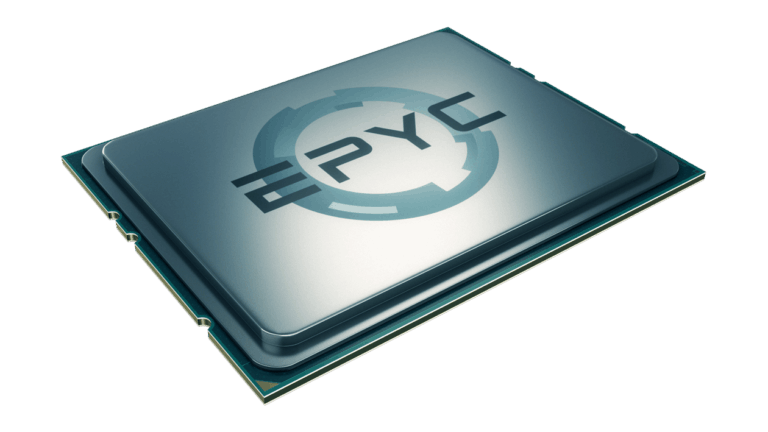Chipset manufacturer AMD has announced the second generation of its EPYC data center processing chips. The new chips are being used by Google, Microsoft and HPE, among others.
The new EPYC processors are built using new technology from contract manufacturers, which improves performance and reduces energy consumption, writes Silicon Angle. According to AMD itself, the chips deliver an 83 percent performance improvement in Java application workloads, and have record virtualization performance.
The chips are built on a 7 nanometer process and contain up to 64 Zen 2-cores. According to AMD, they help to reduce the total cost of ownership by up to 50 percent for many data center workloads.
The new chips also provide up to 23 percent more instructions per clock per core for server workloads. They also deliver four times more L3 Cache compared to the previous generation.
AMD’s biggest competitor is Intel. This chipset manufacturer is now behind schedule for the production of its own 7 nm chips. Those chips are not expected until 2021. AMD can now take advantage of this, and so does the company.
For example, the manufacturer has been able to win over some of Intel’s biggest customers, including Google. During the presentation of the EPYC processors, Google announced that it has already implemented this second generation chipset in a number of its cloud datacenters to handle specific workloads. Later this year, the tech giant will also use the chipsets to drive new general-purpose machines for his Google Cloud Compute Engine service.
Microsoft and HPE
Not only Google, but also Microsoft, Lenovo and Hewlett-Packard Enterprise (HPE) say they already use the chips. Microsoft announced a preview of new Azure virtual machines for general-purpose applications based on the chips.
It also announced limited previews of cloud-based remote desktops and high-performance computing workloads based on the new architecture.
HPE and Lenovo announced new platforms driven by the chips. These include HPE’s new ProLiant DL385 and ProLiant DL325 servers, and Lenovos ThinkSystem SR655 and SR635 servers.
This news article was automatically translated from Dutch to give Techzine.eu a head start. All news articles after September 1, 2019 are written in native English and NOT translated. All our background stories are written in native English as well. For more information read our launch article.